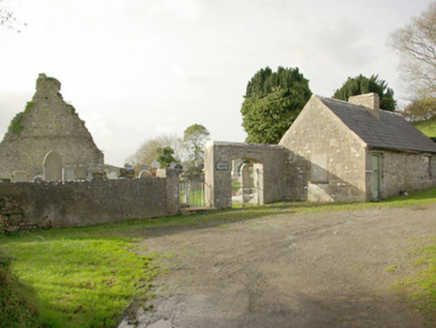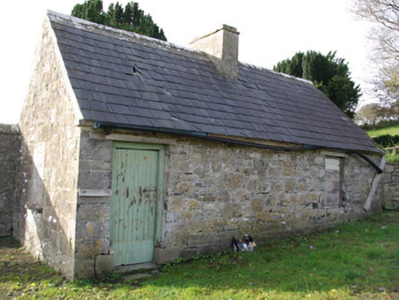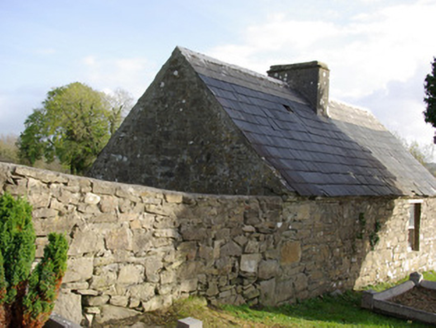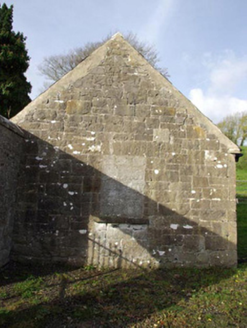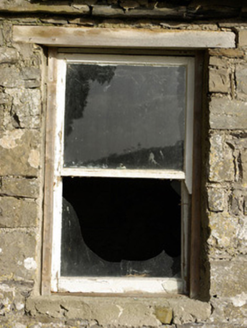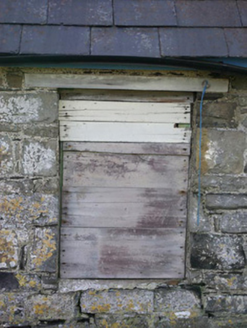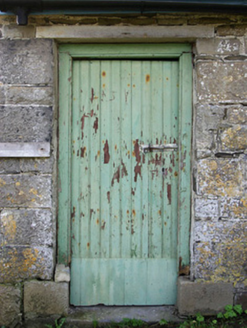Survey Data
Reg No
40910326
Rating
Regional
Categories of Special Interest
Architectural, Historical, Social
Original Use
Outbuilding
Date
1800 - 1840
Coordinates
189801, 371218
Date Recorded
11/11/2007
Date Updated
--/--/--
Description
Detached two-bay single-storey outbuilding or former sexton’s house, built c. 1810, now in use as outbuilding. Pitched natural slate roof with clay ridge tiles, cut stone eaves course, and central smooth rendered ruled-and-lined chimneystack with corbel course. Uncoursed rubble stone construction to front elevation (north-east) with flush ashlar quoins to the corners; coursed and squared rubble stone construction to the south-east gable end. Square-headed window opening to the north-west end of front elevation (north-east) and to the rear elevation (south-west) with remains of replacement one-over-one pane sliding sash windows and with stone sills; former window opening to the south-east gable end now blocked. Square-headed door opening to the south-east end of front elevation with timber battened door, replacement timber lintel and with stone plinth blocks. Located adjacent to the main entrance to Drumhome Old Church graveyard (see 40910329) with rear elevation (south-west) built into boundary wall of graveyard. Main entrance to graveyard adjacent to the south-east. Located to the west of Ballintra close to the shores of Donegal Bay.
Appraisal
This simple building retains much of its early character and form despite features associated with Drumhome Old Church Graveyard. It is well-built using squared rubble stone masonry while the retention of the natural slate roof adds a satisfying patina of age that enhances its visual expression. The form and location of this building suggests that it may have been originally built as a caretaker’s or sexton's house associated with the adjacent graveyard, and is one of very few remaining buildings of its type in County Donegal. This building is an interesting, if unassuming, addition to the built heritage and social history of the local area, and makes a positive contribution to the rural landscape to the west of Ballintra.
